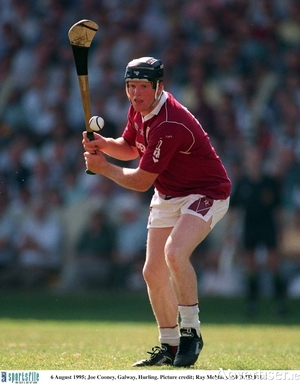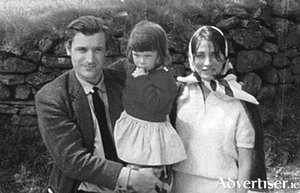Search Results for 'Gerald'
9 results found.
Galway Bohemians, the early days
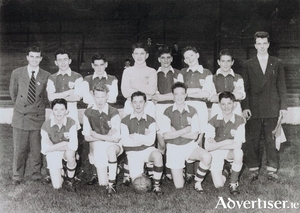
John O’Dowd got the inaugural juvenile soccer league (for boys under-16) underway in Galway in 1931-2. The clubs competing included; Crusaders, Hotspurs, Reds United, Emmetts, Unknowns, Bective Rangers and Hibernians. The swamp was the only soccer pitch available in Galway at the time. The league was a big success and this prompted the organisers to run a minor league in the 1932-33 season.
‘My dear little runaway Nora..’
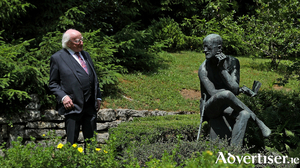
Like all widows Nora had barely time to grieve. There was so much to be done. Both she and Giorgio and her grandson Stephen, were in a state of shock at Joyce’s sudden death. Joyce suffered indifferent health all his adult life, and endured a series of painful eye operations which had little effect on his looming blindness.
A story of two fathers and two children

The final chapter in the history of Shakespeare and Company, the famous Paris bookshop, began with the publication of James Joyce’s Finnegans Wake, in May 1939. The shop closed in December 1941 when a Nazi officer saw a copy of Joyce’s book in its window and asked to buy it. Sylvia Beach refused saying it was her only copy, and was not for sale. The officer threatened to return and confiscate her entire stock, and left. He returned the next day and demanded she sold him the book. Again Sylvia refused, and the officer, ‘trembling with rage’ warned that he would be back that afternoon and seize all her books.
The 'Irregulars' of St Gerald's College, Castlebar, 1922
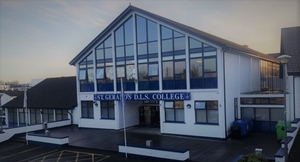
Anyone schooled at St Gerald’s De La Salle College in Castlebar in the early to mid-1980s will know what it was like to go on a ‘Nature Walk’ on the shores of Lough Lannagh during a double science or biology class, when the weather improved in May or in September after the long summer break.
‘One of the greatest, truest spirits alive’.
In what must be the ultimate irony in the compelling story of Ted Hughes and Sylvia Plath, and their brief, but significant visit to Connemara in September 1962, it was Hughes who returned to find solace and peace there. Sylvia had planned to return that autumn, instead she found, what she thought was a refuge in the former home of WB Yeats in London, and despite the onset of severe depression, remained there to write her best poems. It would probably have saved her life if she had taken up the rented cottage she had paid a deposit for, between Cleggan and Moyard. Instead in London she battled against a bitter cold winter, ‘flu, frozen pipes, and minding her two small children while writing furiously most of the night.
An Irish Airman
Week VI
